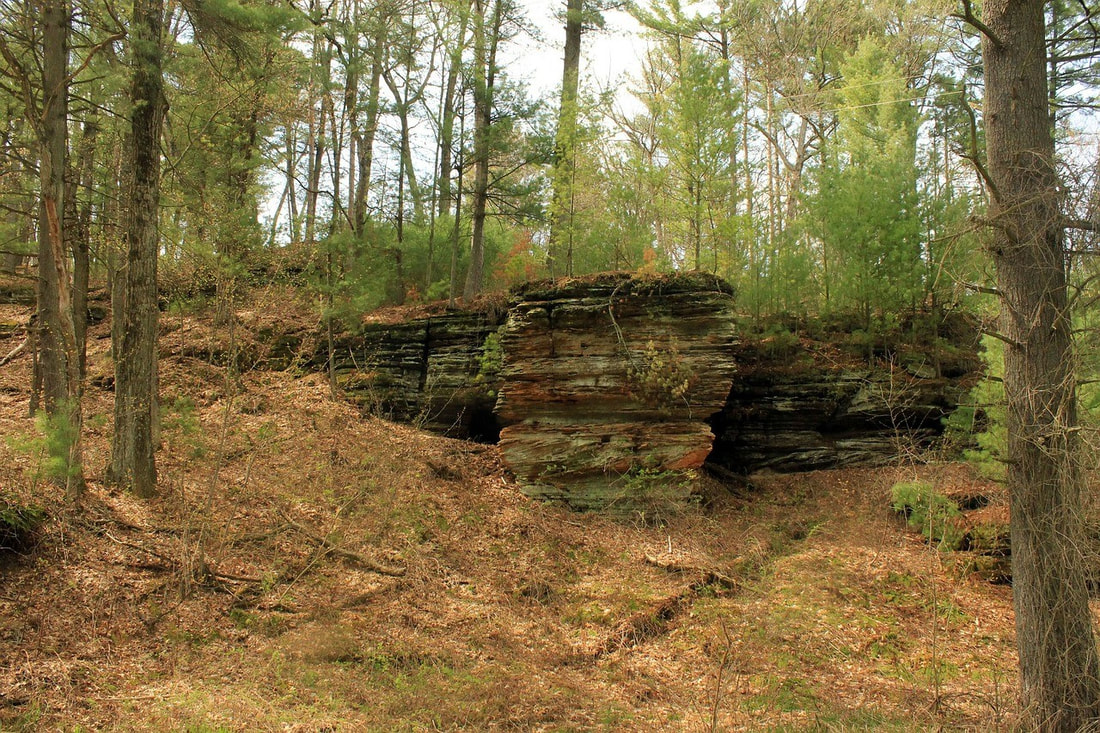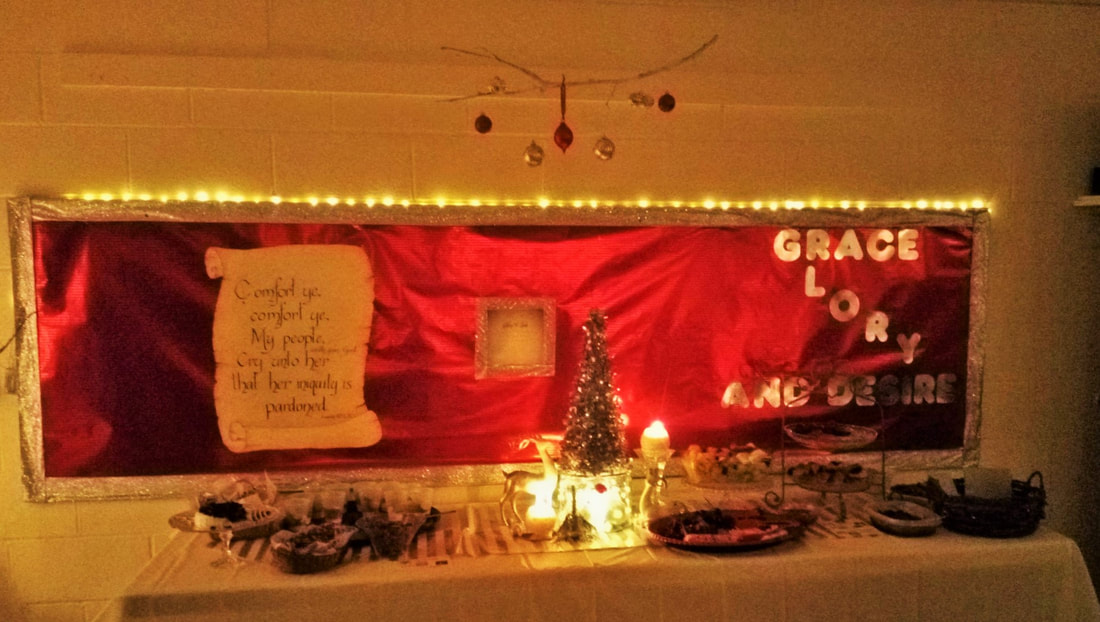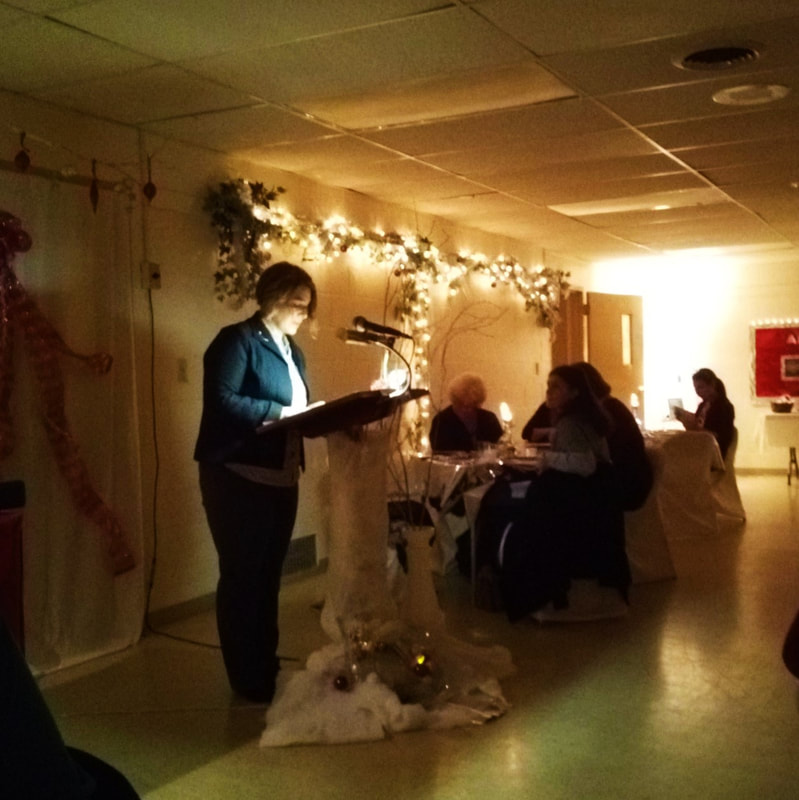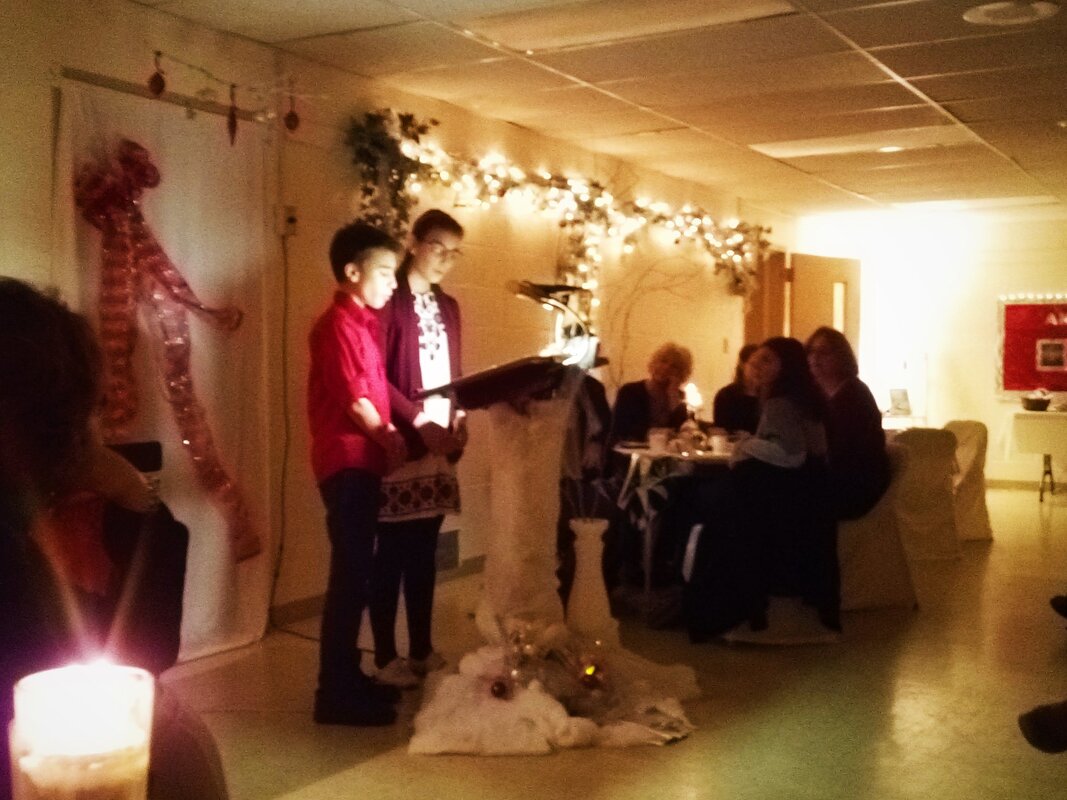|
One of the divides in American evangelicalism today has to do with the Ten Commandments. There are many who believe that the Ten Words of Exodus 20 are a law enacted by God specific to that time and place and since rescinded. That does not mean that such people necessarily believe that murder can be permitted. Many sensibly believe that murder is never permitted. Some believe that God once again forbids it in the New Testament; and, because he does, it remains out of bounds.
The question is about the nature of the law expressed in the Ten Words. Is it merely positive law, law that exists because God has to make a decision and to draw a line, or is it related to God in a more fundamental way? There is a view of the law that begins to be clearly expressed in the Reformation. This view sees the law as a revelation of God’s character, which is unchanging. It views the Ten Commandments as an unchanging moral law, because its main function is not to regulate behavior, though it also functions that way. But if it doesn’t exist mainly to regulate our behavior, what is its main function? To reveal the Lord to his people. It is, after all, found in the Bible, which exists for purposes of revelation. What is more, it is in the book of Exodus, the central theme of which is to reveal the Lord as a deliverer and a good master to his people. The Lord is a good master because he is fundamentally holy, just, merciful, patient, and all the other things which Exodus displays and which Pharaoh never was. God reveals his covenant name, he reveals his mighty power, he reveals his transcendence and immanence, and he reveals that he is desirous of restoring humanity to the communion that was lost in the garden. And just as communion with God is at the heart of the book of Exodus, it is at the heart of the Ten Words. The Ten Words can be read as directions for human life that are based on the character of God. He is God in exclusivity, there are no other beings in his category. He is not depicted as anything in creation, he is wholly other. He must be taken seriously, and we learn about his related jealously and faithfulness. He alone determines how he should be worshipped, having made the world in the space of six days precisely so that we would have the seventh set apart. We could go through all the commandments that way: honoring authority, valuing life, being faithful, valuing the possessions of others, being honest, and dealing with the heart. All these say something about God, are based on God, reveal his holy character and reveal the terms on which we live with him. In the story that the Ten Words come to us we see that God thunders the eight negative commands with two positive commands at the center. It is interesting that the one command regularly reduced to a suggestion is the one where the positive vision is set forth: rest and honor are the themes of the fourth and fifth commandments. Rest from the rest of life exists for the purpose of honoring whom we should: so the Old Covenant Sabbath, and the New Covenant Lord’s Day are about communion with God. The people were overwhelmed by it, they were afraid before Sinai. The law serves that purpose: it should weigh on us and crush us because we cannot keep God’s commands. Moses, however, tells them not to fear. He wants them to understand that not only does God want to crush our sins, he wants to guide our lives. God overawes us, but he does it toward being in relationship. There is an approach. There is a way. There is one who keeps the law, who never violated it; when we trust in Christ his obedience is imputed to us and the crushing condemnation of the law is transferred from us. The law, however, remains, because God’s character remains. And it is a guide for communion with God. What is the outcome of the story in Exodus 20:21? And the people stood afar off, and Moses drew near unto the thick darkness where God was.
0 Comments
When Moses asked who was he to lead God’s people at the burning bush, wondering about his qualifications, the Lord replied that he would be with him. The sign of this, would be a return with the people to serve God on the mountain. In Exodus 19 it has come to pass.
What happens in Exodus 19 is that Moses runs up and down the mountain. In verse 3 he goes up to God, and the Lord speaks to him, offering a covenant to the people. So Moses goes down, in verse 7, and he tells them what God is proposing. The people accept, and, as we see in verse 8, Moses goes back to tell the Lord what the people have agreed. Then the Lord gives Moses instruction on how they are to prepare for the encounter. In verse 14 it tells us that Moses again goes down and instructs the people as he has been told to do by the Lord. The coming of God is with cloud and majesty and awe. There is deafening noise, lighting and smoke, and a tremendous earthquake. The people approach, and once again Moses is called up to the top of the mountain. There, God again tells him to go down and make sure nobody comes uninvited. At this point a beleaguered Moses pushes back in verse 23. Bounds have been set, nobody is about to approach. Haven’t we been through all this already? The Lord brusquely tells him to quit arguing and get going, in verse 24; and so Moses does. He reinforces the restrictions and is told to fetch Aaron, the designated priest. There was probably an informal priesthood in Israel, as in most every other place, but God wants to impress on them how he will regulate that core aspect of the covenant he makes. The back and forth is dragged out longer. As the people wait, Moses descends once more. The point of all this is that Moses is the go-between. He is the mediator of the old covenant: one who goes up to God because God calls him, who is sent to the people, gets their consent, relays it back to God who knows what is in each person’s heart and has no need for any man to tell him anything but still requires Moses to do so anyway. When all things have been accomplished, the last clause about a priesthood is added, prolonging the delay and adding an extra descent and ascent of the mountain for this hard working 80-year-old man (who was also terrified). There is one who comes down from heaven and returns there without running up and down the mountain. There is a better covenant, and there is a better mediator. The temporality of the old covenant and its outward nature is seen in the natural phenomena the angelic presences that mediated it worked, and in the constant ascending and descending required of the man Moses. There is a better mountain, and that is the mountain of the Lord, Zion, which is the place where Jesus Christ is, who has come down and who raises his people up, and whose priesthood is superior. There is a greater need to listen than in that moment back at Sinai when the terrified people heard God speak at last. Heb 12:18–24 For you have not come to the mountain that may be touched and that burned with fire, and to blackness and darkness and tempest, 19 and the sound of a trumpet and the voice of words, so that those who heard it begged that the word should not be spoken to them anymore. 20 (For they could not endure what was commanded: “And if so much as a beast touches the mountain, it shall be stoned or shot with an arrow.” 21 And so terrifying was the sight that Moses said, “I am exceedingly afraid and trembling.”) 22 But you have come to Mount Zion and to the city of the living God, the heavenly Jerusalem, to an innumerable company of angels, 23 to the general assembly and church of the firstborn who are registered in heaven, to God the Judge of all, to the spirits of just men made perfect, 24 to Jesus the Mediator of the new covenant, and to the blood of sprinkling that speaks better things than that of Abel. What do we learn from the visit of Jethro to his son-in-law Moses and the children of Israel?
We learn that there was peace. With Amalek there was war, and war forever, but with Jethro’s Midianite clan, peace. So much, so that even Saul remembered, when undertaking to destroy God’s enemies, to warn the Kenites—the Midianite clan of Jethro—to flee. We learn that Jethro was a great guy. He received Moses originally, gave him a home, a wife, and employment (the passage reminds us of this by reciting the names and reasons behind the names of Moses’ sons). Jethro also permitted him to leave when God called him away. And when he heard of the success of Moses, he came to see it, to rejoice in it, and to show his good will by offering needed advice. There is something of the personal and corporate going on in chapter 18: Jethro has a personal solicitude for Moses that expands to include Moses’ people. You see it first in verse 1 when Jethro hears about what God has done for Moses and the people, both are mentioned. It begins to form a pattern in verse 10 in his formal blessing: he blesses Moses and then the people as well. And you see the third instance of this pattern in verse 18 when Jethro says the situation will not only wear out Moses, but also the people. Jethro’s desire for the shalom, the well-being of Moses naturally becomes a desire for the well-being of Moses’ people. There is a moral lesson there about how we treat others, a contrast between the Amalekites and the Midianites. There is also a spiritual lesson about treating with God’s people, his church. We also learn that God has made Moses a ruler and a prince in Israel. Reminded of why Moses met Jethro to begin with, we look back and see the words that the Israelite with whom Moses remonstrated rejected him: “Who made you a prince and a judge over us?” (Ex 2:14) What does Jethro find Moses doing in chapter 18:13? And so it was, on the next day, that Moses sat to judge the people; and the people stood before Moses from morning until evening. The answer to the question was that God had made him a prince and a judge. Moses meekly waited forty years for God to do so. Moses’ father-in-law, a man who helped him and whom he should honor, gives him advice. And Moses’ attitude is not to reject it. Moses might have: he talks directly to God, he has been the one doing all the work while Jethro was being a (pagan?) priest. Jethro makes a confession of faith in verse 11 that expresses dubious orthodoxy. Moses might have scrupled to listen to him. But he did not. His humility and meekness made him competent to listen to the authority of truth, and the advice of his father-in-law went into the setting in which God’s holy and revealed law was enacted. Jethro did not remain. There is something tragic in verse 27, knowing where Moses and the people of God are heading, in seeing that Jethro still went his own way into his own land. It is not enough to be a great guy, it is not enough to make a mostly correct confession, and it is not enough to have wisdom to counsel others. The Gospel is not that people such as Jethro will be delivered, but those who follow the Lord to where he is leading them. He did not embrace the Lord Jesus Christ freely offered to him in types and shadows; he chose another way, and another destination. The point of the story is not the actual spiritual state of Jethro, but to instruct us by that picture of real events. None are saved by their own impressive qualifications. All who are saved are only saved by embracing the reproach of Christ, through his merit, by his work alone, and trusting solely in him for salvation. I think the lesson is also about having the humility to listen to those who are not headed toward the place of the promises of God when they speak the truth. Christians in our time sometimes think it is discerning to reject anything not spoken by someone they agree with. There is a huge problem with this: not only does it miss the point that even trusted sources make egregious mistakes, but it neglects the fact that those who are not with us or even for us can still say true things. The meekness of Moses seems to me the key to listening for the authority of truth. Humility leads to repentance and salvation, and it does so because it is crucial to discerning the truth. Here is how I picture this. There are certain geographical regions of the world where large stretches of dirt and forest are interrupted by massive formations of rock. These rocks seem to have pushed their way out through the soil and into the daylight. Usually these rocks are simply portions of massive rock layers beneath the surface. They are outcroppings. So it is with local churches. The real church, made up of all who are truly in Christ, rests just below the surface of our sight. However, it bursts forth in local assemblies, which represent the massive reality as yet unseen. - Mark Laterbach, The Transforming Community
At the end of Exodus 17, there is war with Amalek. In chapter 18, on the other hand, peace with Midian. The episode in which Amalek attacks, is one in which Moses has to get help in order to work smarter and pray longer; the episode with Jethro is one in which Moses gets advice so he can work shorter hours and last longer in leadership. They are closely related passages.
Exodus 17:8-16 is a tightly structured story.
This shows that the heart of it all is about Moses getting help so that Israel can prevail. The story is not about how God fights for them as he did at the Red Sea. Since the Red Sea, God has delivered them from problems, strengthening them with water when they were weak with thirst, nourishing them with meat and bread from heaven, guiding them toward the Mountain of God. As they obtain strength, nourishment, and direction, God expects them to exercise responsibility. So in this battle the undisciplined and untried nation of slaves must begin to learn to fight for themselves. But there is a parallel lesson going on—they must not forget to depend on the Lord. That is why Moses goes up to pray. He raises the rod of God, invoking God’s power and protection. He probably does so thinking it will be like the Red Sea, which presumably he did not stand over the whole night holding the rod while the wind blew. With Amalek, to his dismay, when he can no longer stand in symbolical position, the Amalekites prevail. It must have been a moment of confusion up there on the mountain. It seems obvious that Moses would not have expected the battle only to last as long as he held the rod up. It must have come as a shock that he was supposed to maintain that posture of prayer for as long as it took. That was the lesson. What God expects is sometimes puzzling to us. It is often difficult. But the lesson here is that it is not unreasonable. Moses got help, he got comfortable, he sat down, he lowered himself so that his elbows could be supported by two others and so that a long term effort with limited resources could be maintained. Isn’t that a good definition of prayer? Making the most of your limited resources to explicitly and constantly depend on the Lord? In Exodus 17 there is an insurrection. The formal complaint against Moses becomes alarming. Not only does Moses fear for his life (they’re about to stone me), he also warns them that they are being irreverent in their behavior, they are complaining against the Lord.
It is interesting that they complain to Moses: they do it because they can see him. The passage is about walking by faith and not by sight, and the problem they have is they go by sight and not by faith. Moses is visible to them. God’s presence with them cannot be at this point doubted, but they are obviously not operating on trust. They walk by sight and not by faith, and that is at the heart of this event. In his response, Moses has to walk by faith and not by sight. Whose idea of a shortage of water is to walk up to a rock and whack it with a stick? The Lord would be there, of course, but does anybody think that when God said he would stand by the rock, that he would be visible there? No, Moses had to walk through the angry crowd, he had to walk before them, go to the front of the encampment, be toward where they were being led by God, gather witnesses for the solemn occasion, and trust that then he hit a rock with his stick, God, who was there, would do something so water would be supplied. He had to walk by faith and not by sight. That Moses used the rod first found in his hand back when he encountered the burning bush is significant. Take the rod which you used to strike the Nile, God says. It is the rod that took away the Egyptian’s source of water. It is the rod that brought the first plague, and it is the rod used to strike Egypt with all the plagues of God’s judgment. In the last incident with water, at Marah, the Lord also mentioned how he healed his people from their plagues. He supplied water to the underserving, instead of taking it from those who deserve to die. God did not rescue Israel because it was a better nation. That was a lesson about unconditional election; this, at Massah and Meribah, is a lesson about substitutionary atonement. This is why Paul says that the rock was Christ. Who is struck with the rod bringing all the plagues that God’s people deserve and as a result pours out streams of living water? If you are reading by faith and not by sight, you will understand that the rock was Christ. Someone has to be stricken once for all for the transgressions of his people. “Grant me, O Lord” prayed Lancelot Andrewes, “for nothing earthly, temporal or mortal to long or to wait.”
In Exodus 16 the people long for the fleshpots of Egypt. The Lord provides supernaturally. Manna is natural nourishment, but supernaturally provided and supernaturally administered. It shows up on the rainless desert floor every morning, like dew. They gather what they need, one omer to each person. One omer is sufficient for a child or a growing teenager, apparently. Nobody lacks, nobody goes hungry, it is the perfect food. On the sixth day they gather twice at much. There must have been twice as much there to gather, because they wonder about it; they come and ask Moses. He says it is what the Lord had said, which he did. It’s just they know that if they keep it from one day to the other, it usually hasn’t lasted. But on this occasion they are supposed to keep it for the next day. There’s going to be a day of rest. Knowing that every other day manna doesn’t last from one day to the other, there is only God’s word for it that one day out of seven it will behave otherwise. Of course, it is miraculously supplied, and it is strangely sufficient in the advised quantity of an omer. Everything about this natural food is unusual. Of course there are those who keep it and find out about the nasty side of manna, as well as those who go out looking on the Sabbath. Both are disappointed. Both failed the test, because God says he set it up to test them. “Then the LORD said to Moses, “Behold, I am about to rain bread from heaven for you, and the people shall go out and gather a day’s portion every day, that I may test them, whether they will walk in my law or not.” Why did he have to test them? When God made the world he set up a similar test: a tree of the knowledge of good and evil, and similarly offered all the rest of the garden to humanity, forbidding only one tree’s fruit. All of creation was good, at that point: very good. But the question is, good for what? Good for testing. What did Eve do? She saw that it was desirable to make one wise. She longed for that which was temporal, earthly, and deadly mortal. God tested his people in the wilderness. He heard their grumbling, and before he acted it tells us that Moses and Aaron gathered the people: “And as soon as Aaron spoke to the whole congregation of the people of Israel, they looked toward the wilderness, and behold, the glory of the LORD appeared in the cloud.” Why? Why do they look now? Why do all of them turn their heads away at the same moment, looking toward the wilderness? Why does God surprise them now when he has promised to show them his glory in the morning? Because God was looking in them for a desire for that which is not earthly, temporal, and mortal. It is a desire for one who will not just nourish earthly, temporal, and mortal life. “Jesus then said to them, ‘Truly, truly, I say to you, it was not Moses who gave you the bread from heaven, but my Father gives you the true bread from heaven. For the bread of God is he who comes down from heaven and gives life to the world.’” They look toward the wilderness, toward the cloud that has and is guiding them, toward the destination which is the glory of the Lord himself, his presence, and the final rest. God knows what they need. He gives the Sabbath so that they will hold back from those things which are merely earthly, temporal, and mortal and cultivate a longing for what is heavenly, eternal, and immortal. He knows what we need, and he gives us Jesus Christ, the bread from heaven, and the one in whom the weary rest. The end of the chapter has a short story about the bitter waters of Marah. The people head for the wilderness of the wall—perhaps some Egyptian border fortification. When they’re running out of water, they come on water they cannot drink. Bitter, bitter, bitter, bitter, you read in Hebrew, which seems to be an implied superlative. Do they feel mocked by the circumstances? They murmur.
Of all the things there are to find in the wilderness, the Lord shows Moses a tree. Wood and water is how the plagues on Egypt began; Aaron took the rod and struck the Nile, and as a result the Egyptians had to dig around for water. This is why the Lord says he will put none of the disease on them that he put in the Egyptians. He does the reverse, he makes the water potable. And it is a warning, so that nobody thinks that God chose Israel because they were slightly better than the Egyptians, that they were less likely to oppress other people the way the Egyptians oppressed them. If you think back to the time of Abraham and Sarah, you will remember Hagar the Egyptian slave. God is saying to the people here in Exodus 15 that they are no better than any others, that none who are chosen are better, but they are chosen because he is the Lord their healer. Unlike Pharaoh, there is mercy with the Lord. Origen of Alexandria, who was tortured for his faith and refused to deny the Lord, speaks of how the wood of the Gospel makes the bitter waters of the law sweet. Isn’t that a good picture of the way it ought to work? Who loves the law thinking of it merely as a series of prohibitions? Who says, O how I love thy law as something that simply forbids and restricts and curtails? But when the law is a revelation of God’s character, when we understand that God when he forbids adultery does it because he is faithful, because he loves faithfulness, because he is faithful even to the unfaithful, because he is telling us about Christ, then we taste the sweetness of those waters. Of all the things to show up in a wilderness, not a bush, not a bleached skull, not a cactus or a tumbleweed, but a tree. Sometimes a tree is just a tree. Still, is it any coincidence when everything wrong with the human race beings at a tree, and everything restored again takes place at a tree, that what Moses sees when he cries out to the Lord in the wilderness is a tree? The first enormity is that Caesar Augustus makes a decree that all the world is to be registered and taxed. All the world! And so it was. A conversation perhaps took place in Rome. “We need more money.” “How can we tax them more?” “Do we even know who there is to tax?” “Ok, let’s find out. Let’s order a universal census.” And so it happens. Inconveniently for Mary and Joseph. But that is the world on that night: the world of power goes about counting its money and paying its bills.
The second enormity was that there was no human habitation where a young woman could give birth to her first baby. Nobody let them in. Nobody apparently cared. Contrasting with the power of Caesar Augustus and the workaday world, is the powerlessness of Joseph. His wife had to give birth to the most unusually conceived child and the future king of Israel in circumstances that would have made any of us angry. How can people be so indifferent and selfish? They were being crunched by Rome, standing in line all day perhaps, exhausted from traveling, unready to help. Everybody had problems. The third enormity is that of the shepherds. These were not of the upper crust. What is the least likely place that you would think of today to send a troop of angels for the announcement of the world’s most important event and the most splendid worship service recorded on this planet? How about to a fast-food restaurant, where the employees are taking a smoke break in the back after closing and before getting down to the cleaning? There is something improbable about giving the message to the least likely people, but that is who these shepherds were. “To you is born this day in the City of David, a Savior.” In Rome, the geese were silent—not knowing an invasion had begun—and the crickets chirped. And that is the tale of three enormities. God comes in the night, the angels make no announcement to the distant powerful and mighty, with their braziers and mulled wine, but to those who slept under the stars, to the dispossessed. God works otherwise, God does otherwise, God is not coming to the palaces of Rome, so busy waiting for the world to be taxed. Do you wonder if the shepherds made the census? No matter if they did, who cares about that universal act of government bureaucracy which made the world unsettled and uncomfortable? The shepherds came to the manger, and that is what the story focuses on, because that is where what matters happened. |
AuthorVarious Archives
August 2023
Categories
All
|







 RSS Feed
RSS Feed